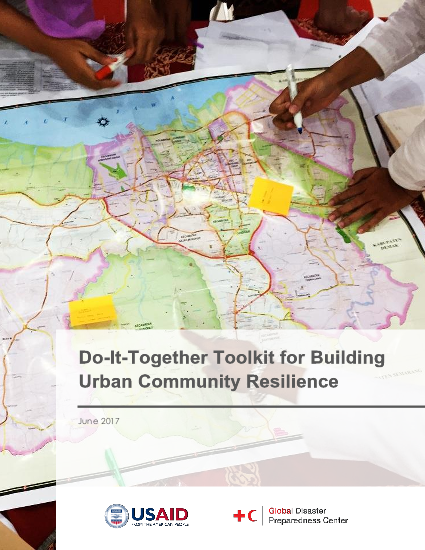
Communities worldwide have greater opportunities for growth and connectedness than ever before; yet the number of people exposed to hazards, shocks, and stresses is rapidly increasing, especially in coastal cities, leading to increased risk and vulnerability. At the same time, people living in cities are themselves agents of change and have significant resources, skills, and capacities to bring to resilience efforts in their own communities and across their cities and districts.
Numerous community organizations do significant humanitarian and development work in vulnerable neighborhoods, and this is helping to build social capital and local capacity. However, they are not able to address the full range of needs related to resilience and are also frequently unable to relay unaddressed concerns – including many related to disaster risks – to corresponding municipal or national authorities, or to other potential partners.
To strengthen their resilience in the face of climate change, cities need an enhanced level of civic engagement that draws on the strength and growing diversity of urban communities and that can effectively complement formal governance structures by engaging a wider set of stakeholders to focus on resilience at the community and household level. Combined with the community-based, neighborhood approaches that community organizations have long invested in, this type of civic engagement in urban settings provides a bottom-up push to accelerate local risk-sensitive decision-making and influence development, governance and investment for effective community resilience outcomes.
To effectively act at these larger scales, organizations must take their current tools and methods and organize them in two new ways:
- To use systems thinking to analyze vulnerability and identify resilience opportunities not just within the community but at the city-scale, and
- To build coalitions of organizations that work together toward common vulnerability reduction and resilience building goals.
This toolkit presents an approach for assessing city-wide community resilience that will allow you to:
- Identify community resilience priorities and needs that require city-level attention and intervention;
- Determine whether and how community and city-level resilience priorities align; and
- Identify entry points for building resilience at the community-level that can contribute to overall city-level resilience
Links
Resource collections
- Evaluating humanitarian action
- UN Habitat - Urban Response Collection
- Urban Response - Urban Crisis Preparedness and Risk Reduction
- Urban Response Collection - Community Engagement and Social Cohesion
- Urban Response Collection - Economic Recovery
- Urban Response Collection - Environment and Climate Change
- Urban Response Collection - Housing, Land and Property
- Urban Response Collection - Urban Crisis Response, Recovery and Reconstruction
- Urban Response Collection - Urban Resilience
